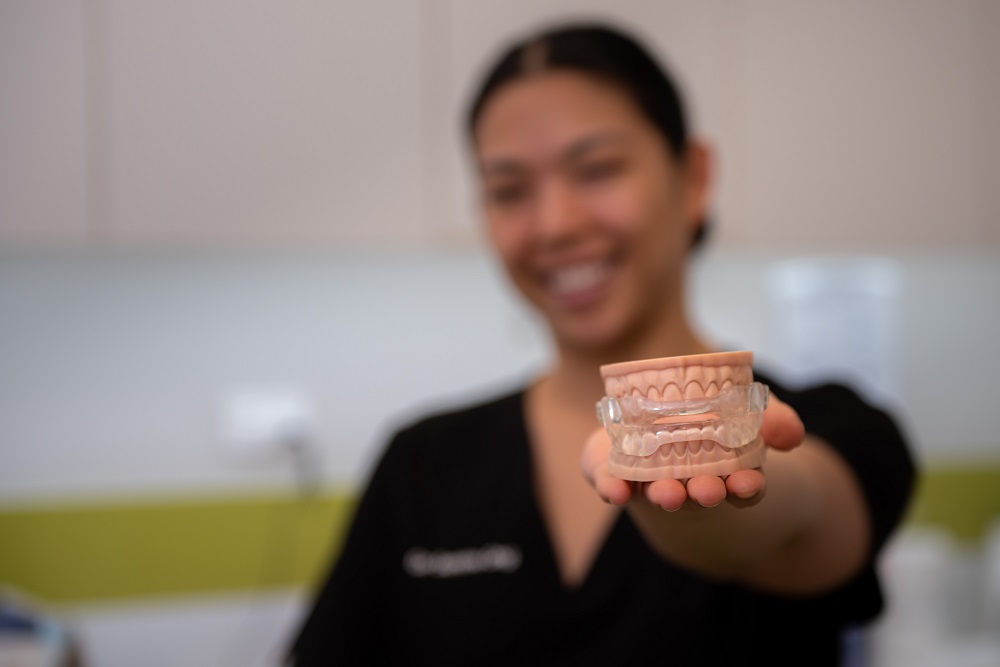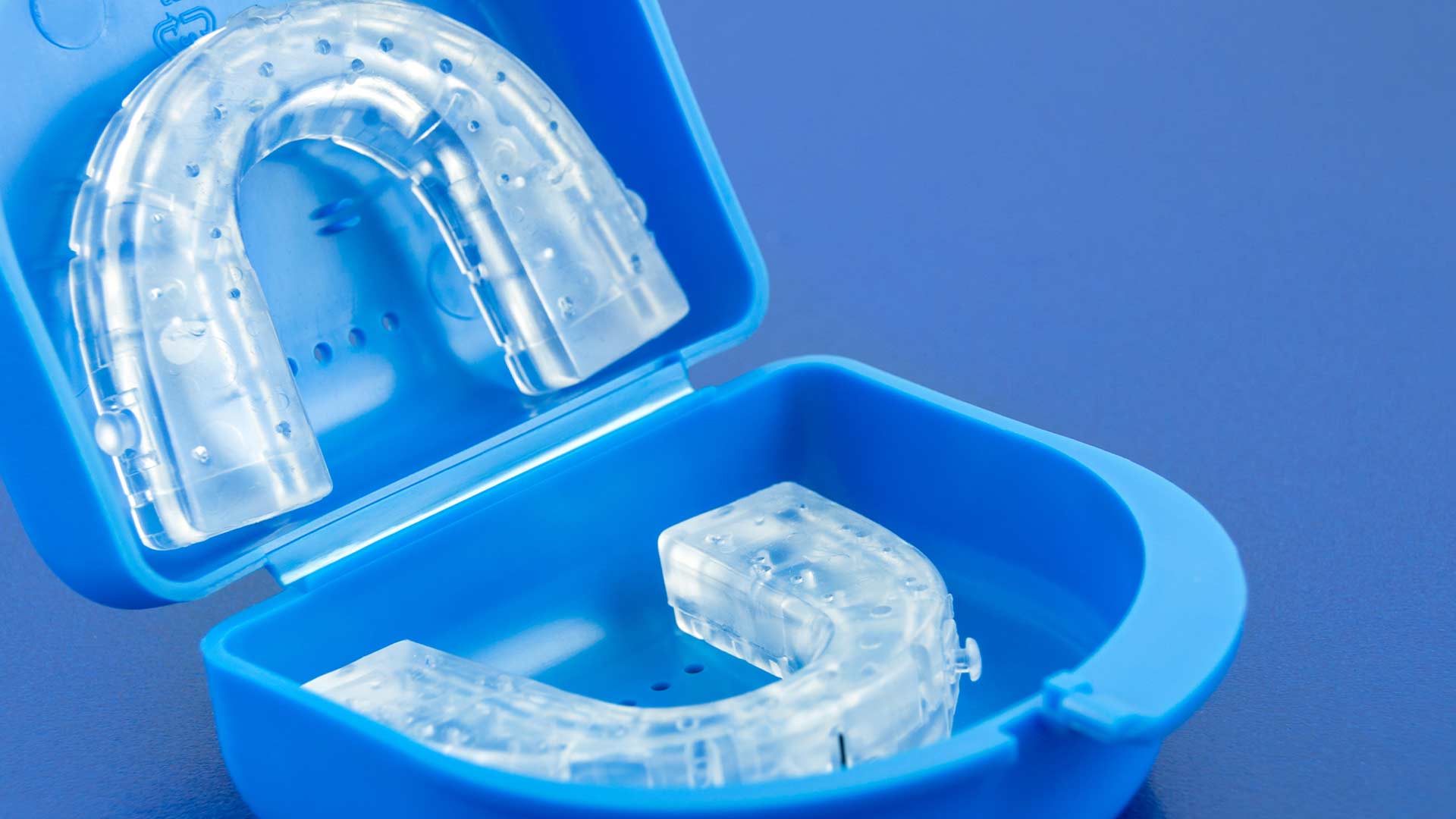Mandibular Advancement Splints
Many people snore at night without realising it could be a sign of an underlying health problem like obstructive sleep apnoea.
If you or a loved one snores or experiences excessive fatigue during the day, be sure to bring these symptoms up during your next dental or doctor checkup to discuss the option for Mandibular Advancement Splints.
What is Obstructive Sleep Apnoea?
Obstructive sleep apnea is the world’s most common sleep-related disorder. Individuals with sleep apnoea experience repeated instances of stopping and starting breathing during sleep.
Sleep apnoea can lead to various side effects and put individuals at a higher risk of certain health conditions.
Several types of sleep apnea exist, with the most common being Obstructive Sleep Apnea. This type of sleep apnea causes the throat muscles to relax throughout sleep, causing the airway to become blocked.
The Symptoms of Sleep Apnoea
Sleep apnoea can lead to various side effects and put individuals at a higher risk of certain health conditions such as:
- Heart attack
- High blood pressure
- Abnormal heart beat
- Stroke
- Type 2 diabetes
- Liver disease
- Fatigue
- Sleep deprived partners
How Is Sleep Apnoea Treated?
Many easy, effective treatments for obstructive sleep apnea are readily available. Treatment must be determined by your dental professional or doctor.
Examples of treatments for sleep apnoea include:
Changing sleeping positions
Limiting alcohol consumption
Losing weight
Allergy treatment
A CPAP machine (continuous positive airway pressure)
Quitting smoking
Oral devices, such as a Mandibular Advancement Device (MAD)
- Surgery to remove excess tissue out of the back of the throat to promote a more open airway

What Are Mandibular Advancement Splints?
A mandibular advancement splint is a
custom-made, prescription medical device. It is worn during sleep to help treat mild to moderate obstructive sleep apnoea, amongst other disorders.
Mandibular Advancement Splints work by temporarily advancing the lower jaw and tongue forward. This reduces throat constriction and opens the airway while sleeping to prevent sleep apnoea and snoring.
Benefits of Mandibular Advancement Splints include:
- More affordable than a CPAP machine
- Easy to use
- Minimal side effects
- Effective
- Easy to care for (simply clean with a toothbrush and toothpaste)
- Long-lasting (can typically be used for 4 to 5 years)

The following groups are most likely to experience the benefits of a Mandibular Advancement Device:
- Younger individuals
- Individuals with mild-to-moderate sleep apnoea
- Individuals who notice an improvement in their sleep apnoea when they sleep on their side
- Females
- Individuals with a receding jaw structure
Individuals who have severe dental issues or wear dentures are not good candidates for a Mandibular Advancement Device.
Contact Us
Treatment for obstructive sleep apnoea is relatively simple but can have a significant positive impact on your quality of life and overall health.
Mandibular Advancement Splints FAQs
Does everyone who snores have sleep apnoea?
Although snoring is a common symptom of sleep apnoea, snoring does not automatically indicate sleep apnoea.
Is there a certain type of snoring that indicates sleep apnoea?
Diagnosis of sleep apnoea can only be done by a Sleep and Respiratory Physician, but there are signs to watch for. With obstructive sleep apnea, you may find snoring is loudest when sleeping on your back and it may be minimal or go away completely when on your side.